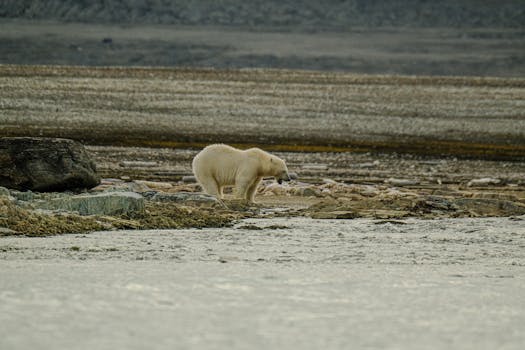
Introduction to Climate Change
Climate change, defined as significant alterations in temperature, precipitation, and other atmospheric conditions over extended periods, is a pressing problem facing the planet today. It has far-reaching impacts not only on human life but also on the ecosystems that underpin biodiversity. These ecosystems are integral to maintaining environmental balance and the services that humans rely on.
Disruption of Ecosystems
The most immediate effect of climate change is the disruption of natural ecosystems. Altered weather patterns can lead to habitat destruction, affecting plants and animals alike. For instance, melting ice caps in polar regions radically transform habitats for species like seals and polar bears. On their usual hunting grounds of thick ice rising above the sea, they struggle as the ice recedes. Such changes shift entire competitive balances, pushing some species towards extinction while giving others a chance to thrive.
Shifts in Biodiversity
As temperatures fluctuate, species are forced to migrate towards cooler areas or higher altitudes. For instance, numerous birds have altered their migration routes and timing due to changing temperatures and food availability. While some species adapt, others fail to keep pace, leading to a decline in overall biodiversity. This warning sign echoes the crucial fragility of ecosystems which have evolved for countless years. Biodiversity loss can destabilize ecosystems and hinder nature’s ability to recover from shifts.
Oceanic Changes and Marine Life
Oceanic ecosystems are equally affected by climate change, primarily through greenhouse gas-induced seawater warming and acidification. Coral reefs, often referred to as the rainforests of the sea, face severe stress due to heat and autofloration events. The bleaching of coral reefs signals declining marine biodiversity, impacting not just marine species but also human communities that rely on fisheries. Overfishing, coupled with these changes, compounds the problem, potentially leading to severe economic consequences in coastal regions.
Role of Ecosystems in Climate Mitigation
Lastly, healthy ecosystems also play a vital role in mitigating climate change impacts. Forests, wetlands, and other natural systems sequester carbon, thus helping in the fight against a warming planet. Protecting ecosystems, enhancing biodiversity, and restoring degraded areas become essential acts of solidarity towards sustainability. Investing in conservation not only aids in biodiversity resilience but fosters community resilience against the impacts of climate change.



